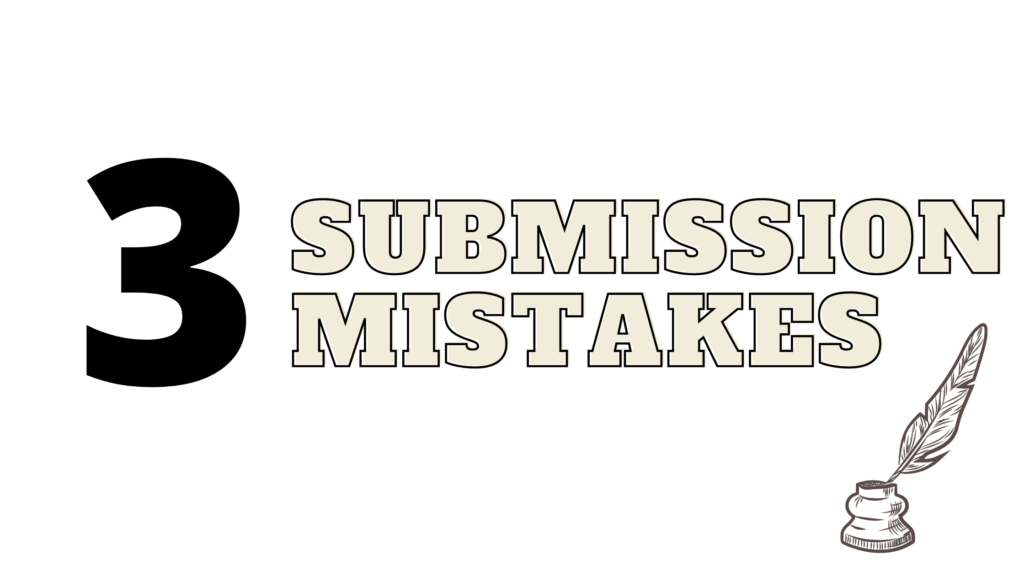3 Submission Mistakes to Avoid

I worked at a small press as a marketing manager in 2018. But before I worked there, I was actually an intern. I got the opportunity to read submissions and analyze them at that company and it was a really great opportunity for me. I had submitted my own work before then and made some of these mistakes myself.
If you’re considering submitting a manuscript, you might want to take these things into consideration.
Follow the Guidelines
I have said this so many times on my blog, but it is the truth. If you want your work to get out of the slush pile, then you need to follow the guidelines. It’s shocking how many manuscripts cannot do this.
One of the most important guidelines is to follow is what type of work they are looking for. If there’s an editor out there that says they are dying to read a YA Urban Fantasy and you decide to send in a book that they aren’t looking for, then you’ve probably wasted both of your time. I’m not going to say it’s impossible that your manuscript will be so amazing that they didn’t even know that they needed it in their life. It’s possible. But it is more likely that the editor is saying they want a specific genre because it’s the type of book they work with best or that the market is calling for. They spend a lot of time weeding through irrelevant books and wondering WHY when they ask for romance, they are being sent horror.
So, the takeaway here is: if they don’t ask for it, don’t send it.
This also applies to the other guidelines, such as length of manuscript or formatting.
Don’t Make Orchid Requests
We all know the finicky flower that demands exact conditions in order to survive. When it comes to your writing career, you don’t want to be an orchid. You want to be a dandelion.
Orchid writers might include a front page of their submission stating the ONLY conditions in which they will work with the editor. They might make specific demands. They might state that their manuscript is perfectly exactly as it is and that they will not be editing it, period. These types of writers can be very challenging to work with. So, if you’re an orchid writer then you need to realign some priorities.
You want to be a dandelion. You’ll thrive under most any condition. Your work can be stepped on, run over, twisted, and you will just pop back up over and over. Why? Because you need a thick skin to cope with this business. And you also need to be willing to change your manuscript and in some cases that means it will change a lot.
Proofread.
Before you send in your manuscript, you need to look at it. Make sure that you’ve checked for spelling errors. You want it to be very clean. And if you aren’t sure if you will miss something in your own writing then you need to find a writing partner or someone willing to read your work and be objective.
I have heard from writers who take an actors look at their works. “I can’t handle reading my own work!” is the writers equivalent of “Oh, I can’t watch myself on the screen!”
To be blunt, if you can’t handle your own writing then there’s a chance that no one else can either.
(This advice does not apply to actors.)
I’ve even seen some errors where within the first 20 pages of a manuscript, the writer changes POV (“I was walking ..” to “he walked…”) I’ve seen books where the main character suddenly changes names partway through. So, check your work for consistency or consider having someone else check it.
I hope that this article helps you in preparing to submit your manuscript. Good luck!




![The Lake by Natasha Preston [Book Review]](https://elizastopps.com/wp-content/uploads/2025/05/81egaTM6DyL._SL1500_-1015x675.webp)

0 Comments
Trackbacks/Pingbacks